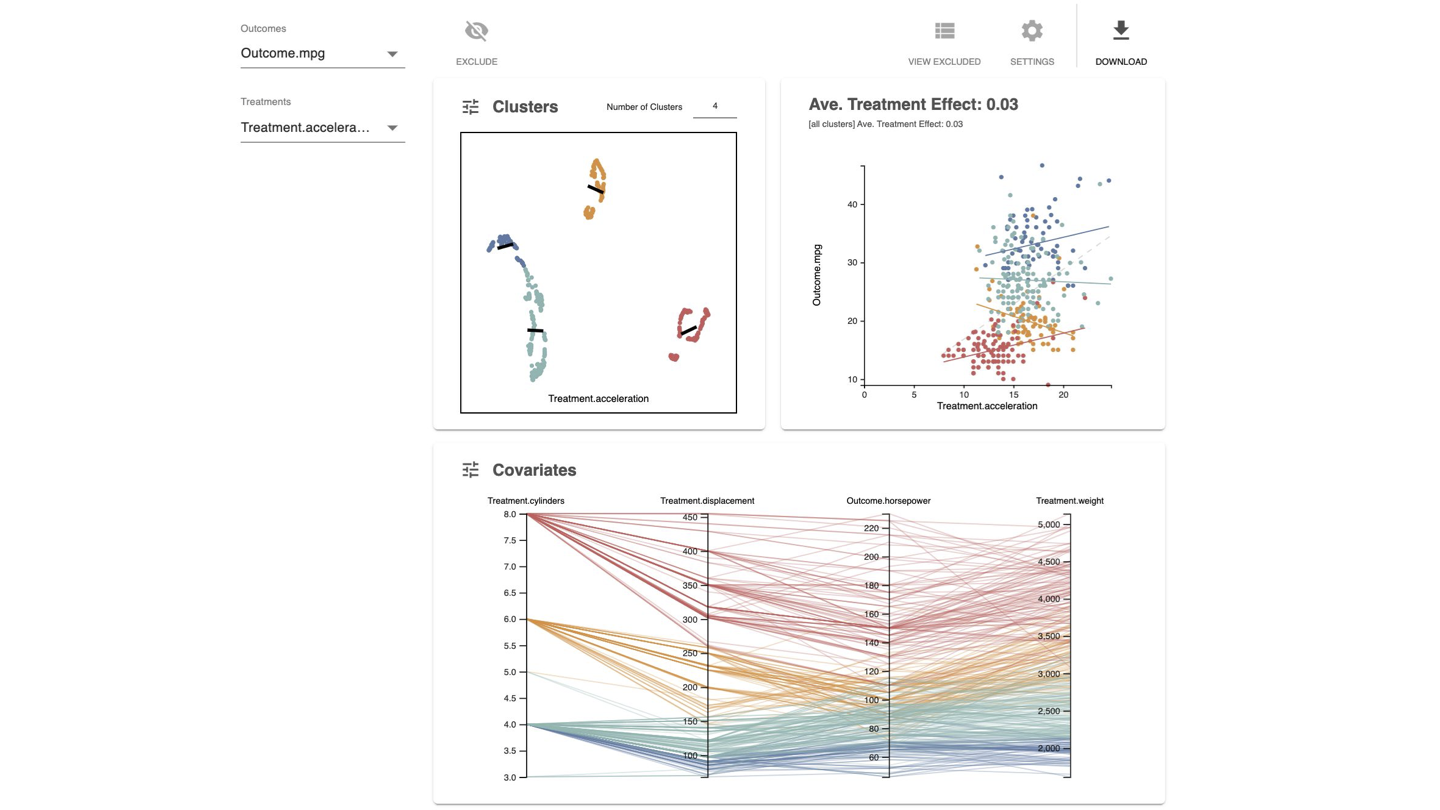VAINE: Visualization and AI for Natural Experiments
Grace Guo, Maria Glenski, Zhuanyi Huang, Emily Saldanha, Alex Endert, Svitlana Volkova, Dustin L Arendt
External link (DOI)
View presentation:2021-10-27T15:40:00ZGMT-0600Change your timezone on the schedule page
2021-10-27T15:40:00Z

Keywords
Domain Agnostic, Data Analysis, Reasoning, Problem Solving, and Decision Making, Mixed Initiative Human-Machine Analysis, Software Prototype
Abstract
Natural experiments are observational studies where the assignment of treatment conditions to different populations occur by chance ``in the wild''. Researchers from fields such as economics, healthcare, and the social sciences leverage natural experiments to conduct hypothesis testing and causal effect estimation for treatment and outcome variables that would otherwise be costly, infeasible, or unethical. In this paper, we introduce VAINE (Visualization and AI for Natural Experiments), a visual analytics tool for identifying and understanding natural experiments from observational data. We then demonstrate how VAINE can be used to validate causal relationships, estimate average treatment effects, and identify statistical phenomena such as Simpson’s paradox through two use cases.